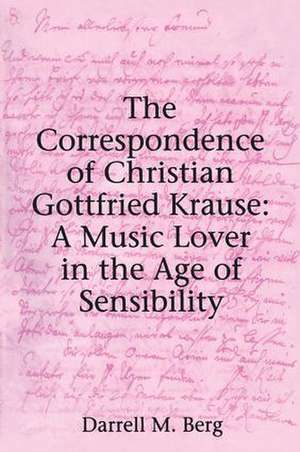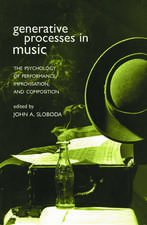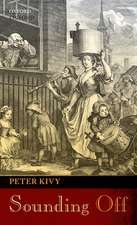The Correspondence of Christian Gottfried Krause: A Music Lover in the Age of Sensibility
Autor Darrell M. Bergen Limba Engleză Hardback – 28 mar 2009
| Toate formatele și edițiile | Preț | Express |
|---|---|---|
| Paperback (1) | 262.28 lei 6-8 săpt. | |
| Taylor & Francis – 18 dec 2020 | 262.28 lei 6-8 săpt. | |
| Hardback (1) | 824.89 lei 6-8 săpt. | |
| Taylor & Francis – 28 mar 2009 | 824.89 lei 6-8 săpt. |
Preț: 824.89 lei
Preț vechi: 1105.69 lei
-25% Nou
Puncte Express: 1237
Preț estimativ în valută:
157.86€ • 164.60$ • 131.20£
157.86€ • 164.60$ • 131.20£
Carte tipărită la comandă
Livrare economică 21 martie-04 aprilie
Preluare comenzi: 021 569.72.76
Specificații
ISBN-13: 9780754664291
ISBN-10: 0754664295
Pagini: 306
Dimensiuni: 156 x 234 mm
Greutate: 0.73 kg
Ediția:1
Editura: Taylor & Francis
Colecția Routledge
Locul publicării:Oxford, United Kingdom
ISBN-10: 0754664295
Pagini: 306
Dimensiuni: 156 x 234 mm
Greutate: 0.73 kg
Ediția:1
Editura: Taylor & Francis
Colecția Routledge
Locul publicării:Oxford, United Kingdom
Cuprins
Contents: Introduction: Musical interests; Intellectual background and interests; The Gleim circle; Contents of the Krause correspondence; Editorial policy. The Krause correspondence in German and English; Appendix: lieder that Krause set to music; Glossary of names; Bibliography; Index.
Notă biografică
Dr Darrell M. Berg is Honorary Associate Professor in the Department of Music at Washington University -- St Louis, USA
Recenzii
’... a wealth of background information that will fill gaps in [our] understanding of mid-18-century Berlin. ...Darrell Berg has done a lot of work on these letters (especially in terms of digging around to find out more about the people involved), and that is to be highly commended...’ Early Music Review ’[The letters] are beautifully presented in parallel translation (English on the left and transcriptions of the original German letters, including all deletions, on the right) with extensive and meticulous notes. ’ German History
Descriere
The fascinating correspondence of the Berlin lawyer and musician Christian Gottfried Krause is an important document reflecting the trends and developments in aesthetics, music theory and music making in the Prussian capital during the reign of Frederick the Great. Krause's letters shed light on the rise of a bourgeois music culture, which during his lifetime gradually replaced the traditional musical institutions at court and in the churches, preparing the urban musical culture which to this day dominates German socio-cultural structures. An introduction and abundant annotations help to reveal a picture of a pivotal cultural moment and will be of interest to anyone working on the roots of urban musical culture and the culture of the mid-eighteenth century in general.











